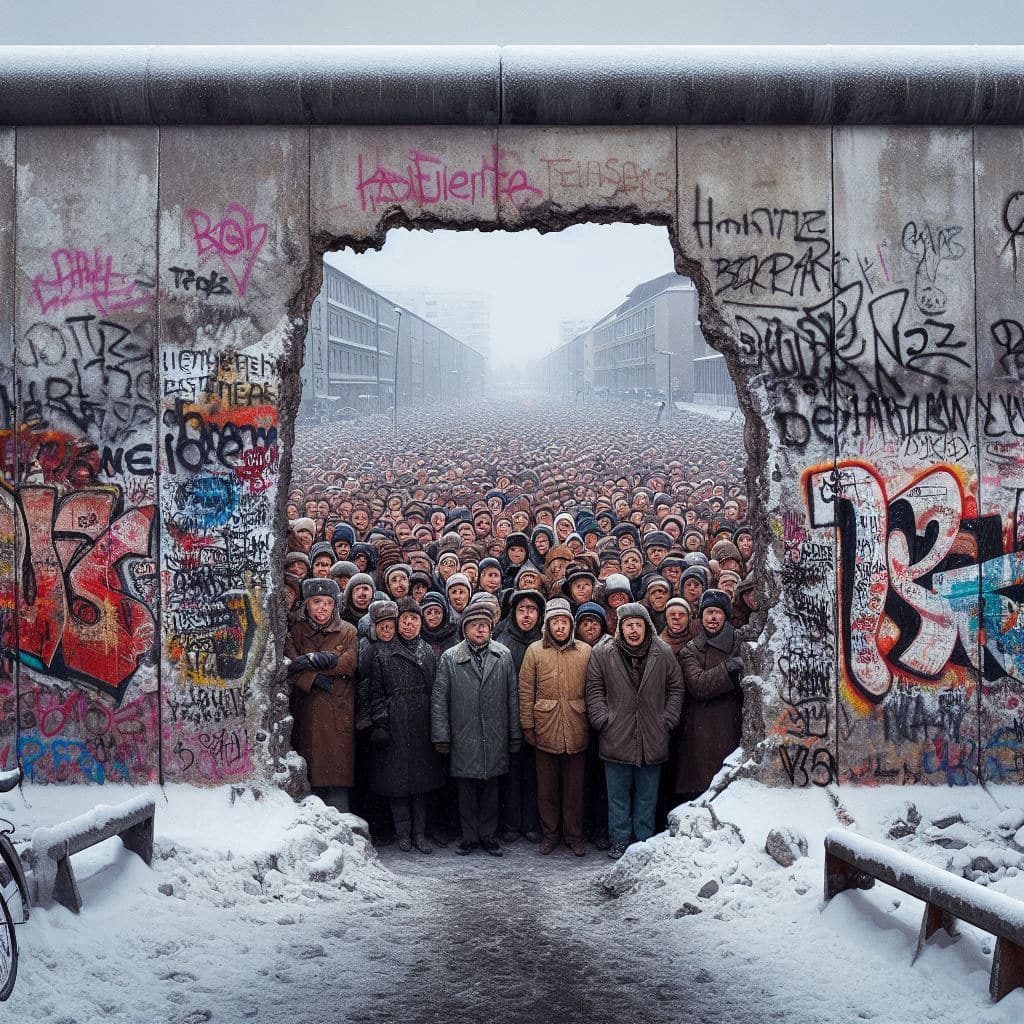Cable on capitalism and competition
SUGGESTED



In his speech this afternoon to the Liberal Democrats’ conference, the Business Secretary, Vince Cable, will assert: “Capitalism kills competition”.
It is arguable that such may be what big business would like to happen (as Adam Smith pointed out); but most business people will find more realistic Schumpeter’s notion of “creative destruction”.
In any event, we should bear in mind that for at least half of the post-war period in the UK it was the State, not “capitalism”, that killed competition. A (partial) list of the nationalised industry monopolies is quite long:
Airlines, Airports, the Bank of England, Broadcasting, Buses, Coal, Docks, Electricity, Forestry, Gas, Nuclear Energy, the Post Office, Railways, Road Haulage, Shipbuilding, Steel, Telephones, the Underground, Waterways.
It is true that many of these formerly nationalised industries have now been privatised thanks mainly to the Thatcher government. What a boon for consumers (and taxpayers!) that policy has turned out to be! Some of us can still remember having to queue for months waiting for (black only) telephones.
I forget which Labour minister it was in 1946 (probably Herbert Morrison) who made the hilarious remark that “from now on the British Transport Commission will be free to go for sheer efficiency!”
Nor should we be too quick to suggest that that’s all history now. Apart from a significant role in housing and pensions, the State still has an effective monopoly in schooling and health. (Though on etymological grounds I prefer to talk about a monoparechy (single supplier) rather than a monopoly (single seller).) I’ve no idea what my health services actually cost, since the State has chosen to do without the enormous benefits of the price system. We could do with a good deal more competition in those very important areas.
The fact is, it’s not capitalism but socialism that kills competition. Vince should know: he used to be a member of the Labour Party.
20 thoughts on “Cable on capitalism and competition”
Comments are closed.




The Hon V Cable is demonstrating (once again) that the priority for a politician is politics; I am not suggesting he does not understand economics, and I am sure he is clued up on the difference between planned economies and capitalist economies (and their respective histories to date), but clearly he has to bend to – or be seen to be bending to – the will of the delegates at the conference. Oh how rapturously his speech will be greeted by the party faithful! Oh how quickly will he be forgotten once he leaves the stage (both this and the larger one).
Vince Cable is a huge disappointment as Business Secretary. As an ex Glasgow Labour Councillor he really does need to shape up. Is he saying that North Korea is more efficient than South Korea? As someone who has knowledge of the staff that work in “casino” banks, for every 1 person that is on a £2 million a year salary and bonus there are 100 or more who have tried and failed. Like football for every £100,000 a week player there are 100 on apprentice £70 a week wages wanting their chance in the first team. Those 100 apprentices were the lucky ones chosen from 10,000+ hopefuls.
Exceptional talent deserves exceptional remuneration.
It will be rapturously received by the very conference that voted against the breaking up of the schools monopoly. It is interesting that the fact that businesses seeking to achieve monopoly (even though they cannot actually do so in practice because of the process of competition) is seen by these people as worse than the government actually having a monopoly and using legislation and the tax system to protect it!
DR Middleton. Interesting thoughts on “monopoly”.
There are private sector providers of health services, which are very successful. I trust not offending any sensibilities by mentioning both The Priory Group and BUPA, others could be too. Private sector providers have been brought in to run parts of the NHS, such as diagnostic services, too. European health providers used to increase competition too, admittedly state funded.
In education there are well over 500 Independent Schools; financed and managed, outside the state, which compete actively for the best pupils, with both state schools and other schools in their sector.
Excessive competition leads to market failure.
It is also worth noting that Thatcher merely created a state-financed, privatised monopoly for airports.
It has only been recently that a part of BAA was sold off to promote competition, amongst airports.
Aspects of the telecommunications provision is made by a privatised monopoly too – where no “cabling”, please forgive today’s pun. In many areas you are obliged to subscribe to the monopoly provider, as well as a separate broad band connection. There is plenty of scope for abuse in the part of the monopoly segment of this market. Content, especially in sport is also controlled by a quasi monopoly provider.
Mr Cable will be right to address these points in his speech.
The welfare state, especially in schooling and health, is socially divisive because very few households can afford both to pay taxes on their income and also pay for-profit providers of schooling and health services. Hence the ‘halfway’ case for vouchers, with taxpayers still financing (at least part of) these services but leaving (many more) customers free to choose.
One of the key questions about a monopoly is whether competition is even permitted by law. It was not with most of the nationalised industries. They represented government failure. If competition is allowed, then ‘potential’ competition may well act as a constraint on a (temporarily) sole provider.
Schools work competitively at two levels: schools compete for the best pupils and parents compete to get their children into the best schools.
So does that mean that you are now arguing for equality of income for all parents, so they all have an equal chance of getting their children into the best, including independent schools? – Now who is putting the case for a marxist approach to education, through equality of parental incomes then?
@Jonathan Harris – such private providers of health and education as there are are only able to be so in spite of government’s dominance of the sectors. Whilst not total, it clearly creates huge inefficiences (the UK’s poor health and educational outcomes are only the most evident of these). I think you’d also do well to remember how heavily government has interfered with communications and broadcasting in the past and continues to create huge barriers to entry (as it does across the entire economy via general and specific interventions, to a varying degree). Anyone out there who’d like to claim we have a ‘free market’ in… anything?
I constantly hear this idea that markets can’t be allowed to be free because monopoly will inevitably result. Excepting that monopoly is not necessarily negative per se, it’s clearly nonsense. Those who claim this also forget that the level of intervention by government is largely what drives sectors towards monopoly in the first place. The idea that, left to themselves and with a legal framework protecting property, all sectors would soon be dominated by monopolies is simply unsustinable theoretically and empirically. And such ‘market failure’ remains a major pretext for intervention – ignoring the inevitable government failures that result!
regarding education, there is only competition between state and private sector in very few cases. Disregarding those parents who would only choose private education, the only real competition that exists is between private schools. The state sector does not need to be privatised in order to compete with the private providers; this could be achieved by “freeing” the state sector from government/local authority control. The current government seems to be seeking to achieve this, and if they succeed I imagine the result will lead to a decline in the private sector. Then there would be competition.
I think that is a very valid point Whig. ‘the level of intervention by government is largely what drives sectors towards monopoly’ With all the leglislation governing business these days, it is only the big boys that can cope and absorb the additional costs due to economies of scale, and thus keeps the smaller businesses from mounting a challenge.
Joss Bolton
You have either no children of school age currently or have not had over the last fifteen years, or live in an extremely remote, isolated, low population location.
The spend or budget per pupil at independent schools dwarfs that at state schools. Does this make independent schools inefficient or uneconomic, or does it make state schools effective, competitive and value for money?
Does the quality of education provided and quality of pupil outcomes at all independent schools increase in direct proportion to the relative budget per pupil, compared to state schools?
Where is the hard empirical evidence to support the sweeping generalisations and theoretical assertions?
Dave Atherton
“Exceptional talent deserves exceptional remuneration.”
Like the England footballers that performed so well at the 2010 World Cup and the gamblers that call themselves bankers that created the current global financial mess?
Only luck, saved Barclays from befalling the same fate as RBS in the bidding war for ABN AMRO. Saved by a Sovereign Wealth Fund. Talent?
I think that experience shows that exceptional remuneration does not lead to a similar level of performance. Dream on!
@Jonathan Harris
You seem to fall into the econometrician’s trap of believing that one can attach a quanitative value ‘x’ to a qualitative and subjective value such as educational outcome or teaching quality. Such a thing is as impossible for this as it is for any aspect of utility (which is always subjective and dynamic). The collorary of your view is, if we can see that for inputs we can achieve a superior level of output we should take that choice. That’s sensible for a private individual to do, although they must accept that they’re making a best guess. But for government to do it and then coerce people into a decision which is based on inherently limited information is clearly wrong.
@Joe Soap – remuneration is reflective (or ought to be) of value – which is roughly measurable, not merit, which is based entirely on opinion. Thus if I am valuable I will be remunerated highly. Of course, if a firm attaches too great a value to its employees, it will be efficient and – if it does so consistently it will go bust or have to cut salaries etc. Or it would, if the government didn’t bail it out. Because the state has real no means of assessing value (and often tries to reward perceived merit) it frequently mispays its employees leading to great efficiency. The error is hard to correct because goverments do not have to adjust to competition, but instead to political priorities
why look at schools from an accountant’s standpoint? Parents don’t ask if a school is spending its money “efficiently”, they look at what its ethos is, and what this translates to in reality – no one is going to give state schools the level of funding [some] private schools have, but some state schools do better than private schools on less, just as some [small] private schools with less do better than others. I have 2 children, and (believe me) this issue is central to us. My parents were both school governors & one a teacher during the grammar school closures. They were both despairing of comprehensives by the end.
Whig
An early economics lesson suggests no real market ever has perfect competition; merely a series of markets that operate on a scale between a complete monopoly and perfect competition.
Government and its appointed regulators’ job is to promote fair and positive competition, as close to perfect, as possible. Market operators always seek to increase rent at the expense of competitors.
Which government market “interventions” were you thinking of?
Is managing long waiting lists for surgery an efficient use of resources, with good patient outcomes? Did 1990s NHS markets cut waiting times, or was state action required?
Whig & Joss Bolton
Back in the real world, people make choices about schools, based on fairly simple criteria:
1. Can they afford to send their children to private schools? If not then, their selection is restricted to state schools.
2. Which good state schools are in the area?
3. Is the school likely to enable the educational outcomes desired for their children for their future lives? – at primary level – entry to the secondary school they wish, at secondary to university, or a more vocational profession, etc
4. Can their child get to the school of their choice easily, either by being taken in a car, or through public transport, walking, cycling etc?
Schools compete for the best pupils.
Joss Bolton
An early exit stage left by Dr Cable would spell the rapid end of the coalition, though certainly his coalition partners are probably as desperate, as you to find any excuse to sack him. Surprising as he is a former Shell Chief Economist. Corporate solidarity?
Dr Cable is the only politician in government that has written an exposition of the causes of the credit crunch and financial crisis in his book “The Storm”. He provided lucid commentary throughout on the market failure. He is the only one with a PhD in economics, too.
Cable played to the gallery at conference, but the UK and the government badly needs his intellect and skills currently.
@JonathanHarris – but the NHS is a government monopoly – to suggest that this is a ‘real’ market is nonsense and not a good example. The reason 5) that people choose a particular school is because they are forced to because they have to live in a certain catchment area. Either they can move, or lump it. What’s selective about that?
Market operators may always seek to increase ‘rent’ at the expense of others but they will only succeed – ceteris paribus – if they are mmore efficient, which is a better outcome for all concerned. Of course, things aren’t ceteris paribus because government interferes and blocks competition. Competition authorities merely try – and fail – to correct the result